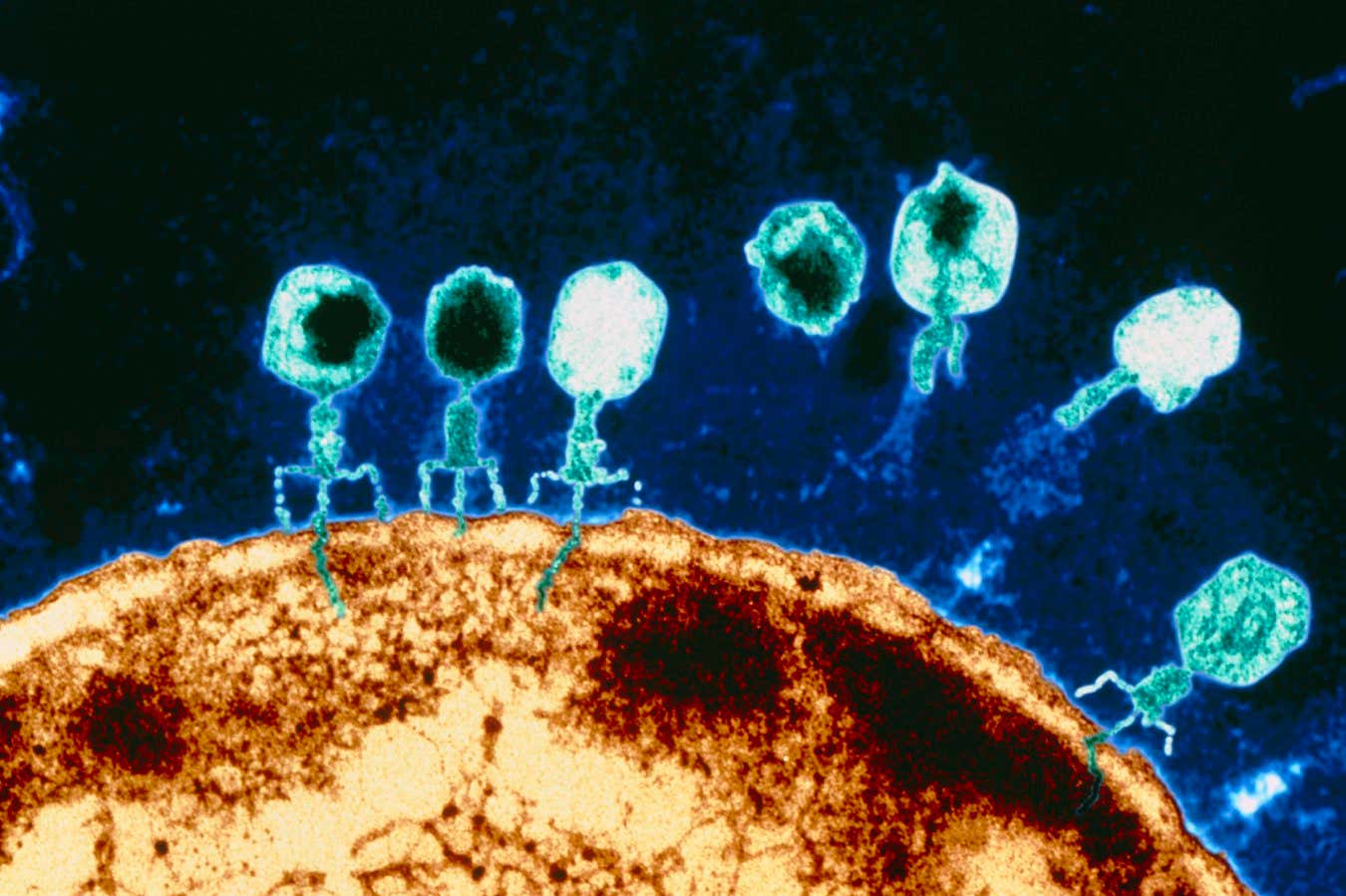Viruses that infect bacteria – called phages – are abundant in our bodies, and they seem to have beneficial effects when our cells engulf them
By Kamal Nahas
26 October 2023
Bacteriophage viruses attacking an E. coli bacterium, seen with a electron microscope
EYE OF SCIENCE/SCIENCE PHOTO LIBRARY
Our cells may get a health benefit when they engulf bacteria-killing viruses. Understanding the role of these viruses, known as phages, in our bodies is important, as they are increasingly used in some parts of the world as an alternative to antibiotics amid the resistance crisis.
“We know that broadly phage therapy is safe,” says Jeremy Barr at Monash University in Australia. But cells trap phages, which are abundant in the human body, as they internalise liquid from their surroundings and scientists don’t know the full extent of how this impacts cells, he says.
To learn more, Barr and his colleagues exposed human and other mammalian cells to phages, namely the well-studied T4 phage, in a laboratory. Staining the phage’s DNA allowed them to see when the cells had engulfed the virus.
Advertisement
The researchers wanted to know whether taking up the phage triggered any inflammation within the cells. They found that no immune responses were turned on after the cells took up the bacteria-killing viruses.
This suggests that phages could treat bacterial infections that cause inflammation without making symptoms worse, says Sabrina Green at KU Leuven in Belgium.
In another part of the experiment, the team explored how engulfing a phage might change processes within a cell. After analysing 2000 proteins that govern cellular functions in lung and kidney cells, the researchers focused on two signalling pathways that were consistently altered.
